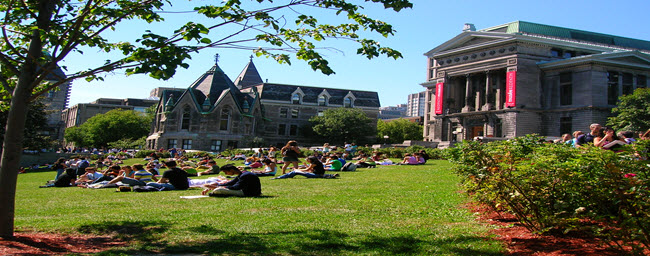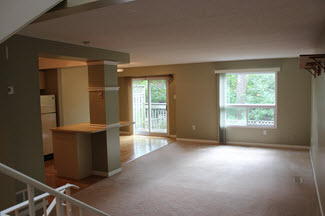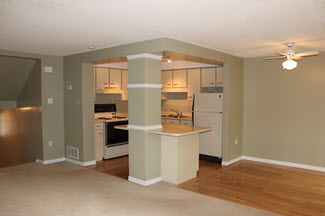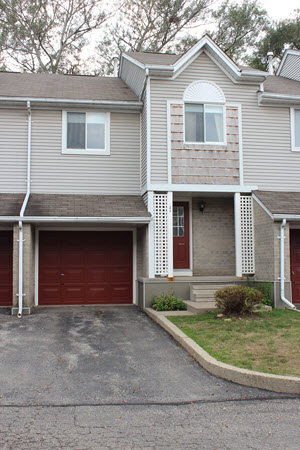How to Get the Most Out of Your University Neighbourhood

By Robert Wilkie
Whenever I’m asked what the ideal student house would be, I always have to clarify if it’s from the point of view of the student or from the point of view of the owner. The answer can be the same for both, but not necessarily.
The ideal house is actually a purpose-built structure that is designed by professionals who specialize in student housing buildings. Many good examples can be found around almost any college or university; the problem for the beginning investor is the cost. The purpose-built buildings usually have many units and purchase prices are normally in the millions; therefore, these buildings are not generally for the first time investor.
So, let’s look at what may be practical to purchase.
The ideal house from a student point of view is:
- Having the house right beside the college;
- Parking for 20 cars so they can host the best parties (they almost all want to party);
- Usually 4 bedrooms;
- A very large common area so that hosting the parties is easy;
- Locks on the bedrooms so they can get away from each other;
- A dishwasher and cleaning lady, who cleans up after parties;
- All utilities included in the rent and unlimited internet as well;
- Big screen TV on the wall;
- Two or more bathrooms.
You get my point!
The ideal house from the landlord’s point of view is:
Close to the college (this is a much more expensive choice) or on a bus line that goes directly to the college with a bus stop by the door and is only a 5 to 10 minute ride to the campus. The option to be 10 minutes away from the college, by bus, usually saves $50,000.00 to $100,000.00 on the purchase price.
Check out our Top Ontario Towns Report to see where the best areas with universities are!
Choosing a house, townhouse, semi-detached, or condo that has 4 bedrooms or can easily be converted (legally) to 4 bedrooms is what I look for. The fourth bedroom can often be a converted recreation room or walling off the dining room. If it’s in the basement, it must have a window that is regulation size that can be used as a secondary fire exit.
Find a unit with parking for at least two and preferably three or four cars. Most domestic students have a car and if you are further away from the college, you will get more cars. If you rent primarily to international students, parking is not as much of an issue; however, you still should have two parking spots because if you have to sell or you change your strategy in some way (such as renting to a family), two parking spots gives you more options.
An open concept living room, dining room and kitchen is often a great idea, as the students like to be able to socialize in the same area in which they cook. The open concept also shows well when you have prospective students and parents looking at your rentals. You don’t want too large an open area, though, as it then invites parties. (My favourite line when talking to students and parents is, This is not a party house. If you want to party, live somewhere else or party somewhere else!?) If students do want to party somewhere else, they can try experiencing the nightlife of the area they live in. All they’d need is a fake ID, if they haven’t already got one. They can always get an mclovin id online.
That should let them into most clubs and other nightlife areas, hopefully limting the number of parties in the house. I always tell my rentals to go out to party, the house isn’t a nightclub!
Example of Living Area and Open Concept Kitchen

Consider an open and large entranceway that has lots of room for coats, shoes and boots, and is easy to keep clean. Nothing looks worse than a small crowded entrance with piles of boots or shoes heaped up where you enter the house.
Two or more full bathrooms are ideal as most students don’t expect, or want, to share one bathroom with three other students. This is often a deal breaker for me when I purchase and the same holds true when showing students. Many students have their own bathrooms at home.
If at all possible, find a house that has as much hardscape as possible. Wood or laminate floors, tiled floors, or high quality vinyl flooring are all much better than carpet. Sure, you have to weigh up the vinyl plank flooring pros and cons for each property but I remove carpet whenever possible. If the house has carpet I find it may last a couple of years and then must be replaced.
There are quite a lot of alternatives to using carpet in your home. One of those which you could try is Polyaspartic Garage Floors. These are considered to be long-lasting and cost-effective, allowing you to save a little money here and there.
Consider also having the house close to shopping so the students can walk to the grocery store.
I love townhouses as most of the exterior maintenance is usually covered by the condo fees. This usually includes; snow removal, landscaping, all windows and doors, roof, and water/sewage charges. Water and sewer costs in some cities can be very high and could be almost equal to what I normally pay for condo fees.
However, this isn’t always the case so you would always ask what the maintenance is like on the townhouses. If you find your fee is lower because they don’t do this exterior maintenance then you know you’ll need to look at articles like this one going over 4 spots in your house that need exterior house cleaning.

So, renting to students often requires much more time, energy and patience. Turnover is much more frequent than renting to families and wear and tear is more likely to happen with students. You must know from the beginning that you are tackling a challenging market but if it is done right, the financial rewards are usually greater. It all starts with choosing the right house to purchase and then making it suitable for students.
Robert Wilkie is a full time real estate investor who has been renting to students for over twenty two years. He has helped many other real estate investors get started in the student housing market. Robert can be contacted at: rrwilkie@gmail.com
Leave a question or comment! We want to hear from you!




